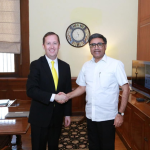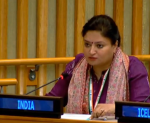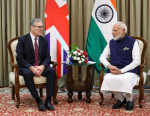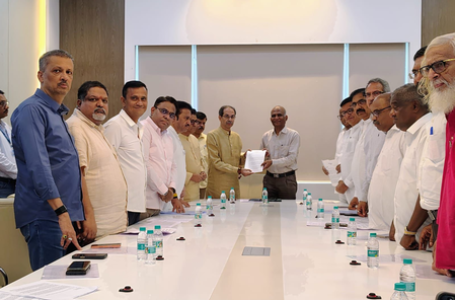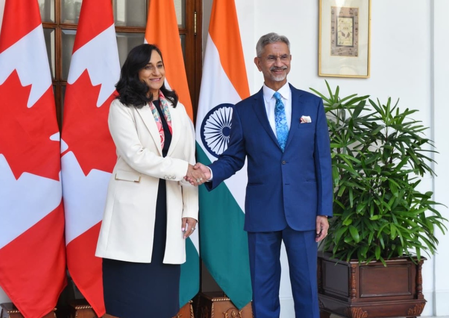
New Delhi: India and Canada, whose relations were considerably strained over the killing of a Canadian Sikh separatist, sought to mend the ties on Monday when they agreed for a new roadmap for reviving their partnership.
The foreign ministers of the two nations, both of which are facing the threat of US tariff, and seeking to diversify their trade, held talks here following which they announced that they will collaborate in areas like trade, critical minerals, and agricultural value chains,
A joint statement issued after a meeting between Minister for External Affairs Dr SJaishankar and the Minister of Foreign Affairs of Canada Anita Anand, said:
” The Ministers recognized that in the context of ongoing global economic uncertainty and rising geopolitical tensions, a strong and resilient India-Canada bilateral relationship is essential. Reviving this partnership will not only create opportunities for enhanced economic cooperation but also help mitigate vulnerabilities arising from shifting global alliances, ensure more reliable supply chains, and reinforce strategic stability in an increasingly complex international environment.”
This statement has come a long way from the point when the then-Prime Minister Justin Trudeau had accused New Delhi about two years ago of involvement in the killing of a Canadian Sikh separatist Hardeep Singh Nijjar. India had firmly rejected the Canadian allegation, while accusing Ottawa of fostering separatist groups on its soil.
However, the relations between the two countries started thawing with the change in government as Trudeau replaced by Mark Carney, who hosted Modi at the G7 summit in Kananaskis in the Canadian province of Alberta.
The meeting between Dr Jaishankar and Ms Anand in New Delhi is a follow up to the talks between the Prime Ministers of the two countries during their meeting on the sidelines of the G7 Summit.
The two foreign ministers expressed satisfaction over the increase in bilateral trade, which reached USD 23.66 billion in 2024 and the expanding presence of Indian and Canadian enterprises in each other’s markets, generating jobs with significant potential for future growth.
They noted the important role played by Canadian provinces, six of which maintain representation in India, and by Indian states in advancing mutually beneficial economic cooperation. The Ministers agreed to work closely together and instructed their respective teams to initiate necessary steps to implement the agreed roadmap.
Affirming trade as a cornerstone of bilateral economic growth and resilience, and acknowledging the growing opportunities in goods, services, and investment, both sides agreed on some early initiatives in trade cooperation.
Significantly they decided to hold the first Critical Minerals Annual Dialogue on the margins of the Prospectors and Developers Association Conference in Toronto in March 2026. This decision can be seen in the backdrop of the latest Chinese export controls on rare earths.
Of special interest to the common Indian, especially youth is the decision to strengthen cooperation in education, tourism, cultural exchange, and professional mobility. The joint statement said that early initiatives in this regard will include: “Refreshed collaboration in higher education and research to reflect the increasingly deep talent pools and cutting-edge research in each country, mphasis on research partnerships in emerging technologies (such as AI, cybersecurity, and fintech), and to expanded Canadian academic presence in India through overseas campuses.
India News Stream






